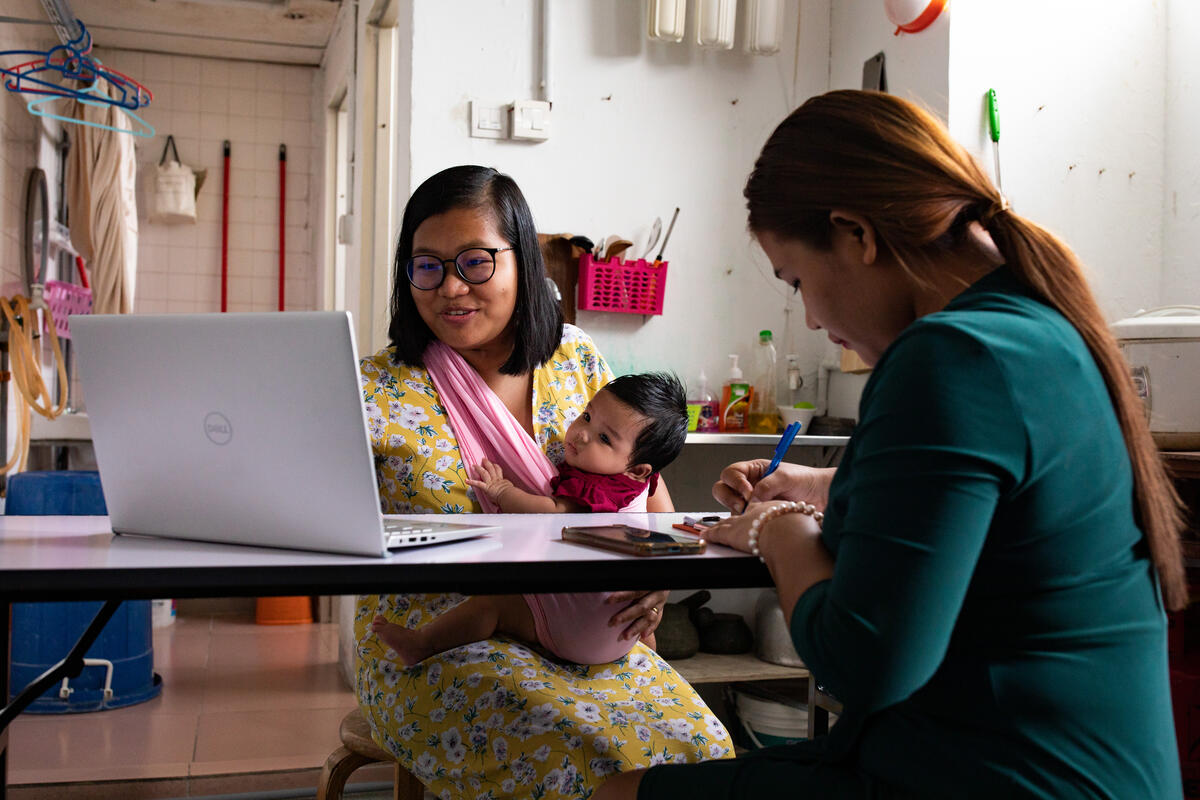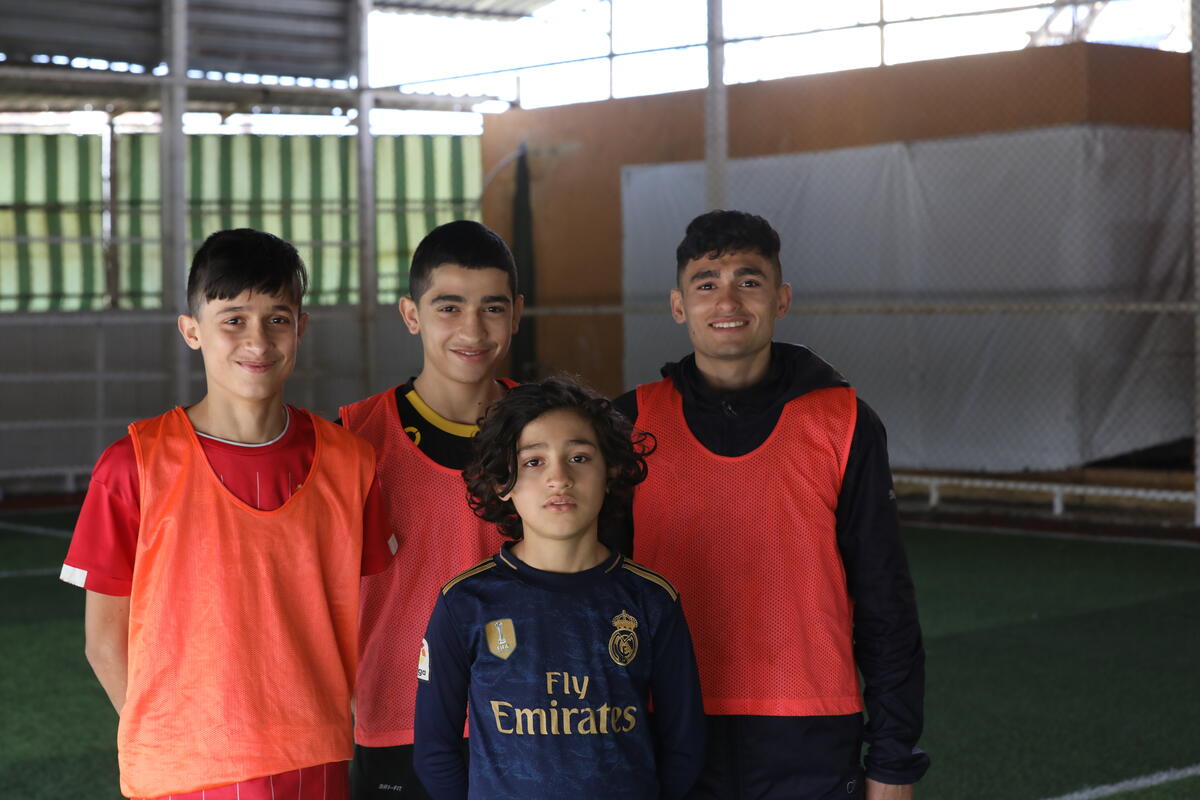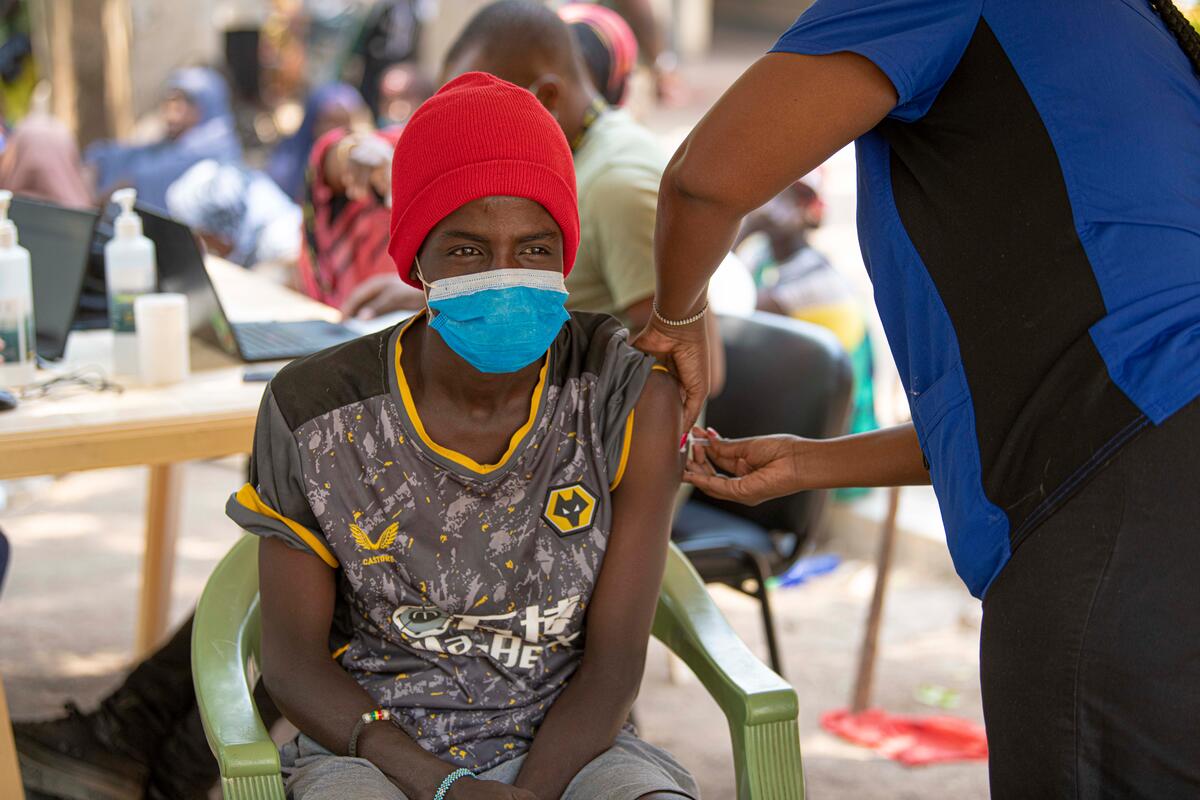UNHCR working to control spread of Hepatitis E in camps in South Sudan
UNHCR working to control spread of Hepatitis E in camps in South Sudan
UNHCR is working with the Ministry of Health of South Sudan, the World Health Organization and other partners to control the spread of Hepatitis E which has killed 16 refugees in three camps in Maban County in Upper Nile State. There have been 23 confirmed cases of Hepatitis E in those camps.
MSF-Holland first began tracking patients from Jamam refugee camp with acute jaundice syndrome in late July. Jaundice can be one symptom of Hepatitis E, which is a virus that damages the liver. It is transmitted by eating food or drinking water contaminated with feces.
Of the 16 deaths 13 have occurred at Jamam Camp, home to about 20,000 refugees, and where 255 cases of acute jaundice syndrome have been recorded. Two people died at Yusuf Batil, home to 37,000 refugees, and where 77 refugees have come down with acute jaundice syndrome. The other death is at Gendrassa, where 10,000 refugees live and where 52 people have been diagnosed with acute jaundice syndrome. In another camp - Doro, which shelters 43,000 refugees, we have one diagnosed case but no deaths. This refugee came to Doro from Jamam already ill.
Hepatitis E hits young people between the ages of 15 and 40 hardest. In the three camps where we see refugees with acute jaundice syndrome, more than half are between 20 and 39. Hepatitis E is particularly dangerous for pregnant women; their death rate can be 20-25 percent. Among the refugees who have died were five pregnant women.
Together with our partners, we are improving sanitation in the camps, and increasing the amount and availability of safe drinking water. Flooding and use of contaminated surface water for drinking have been persistent health challenges for refugees in South Sudan.
We also continue to promote improvements in personal and community hygiene practices in all the South Sudan camps. Messages to refugees focus on personal protection against contracting the virus by not drinking untreated water, not eating raw food or food washed in unclean water, and by not washing in communal containers. We are promoting good practices like hand-washing, not defecating in the open, and not letting animals defecate close to homes.
So far there have been no cases among the local population.
STATISTICS
- There are 169,463 Sudanese refugees in South Sudan.
- Of this number 104,960 are in upper Nile State and 64,503 are in Unity State
- UNHCR is seeking $186 million in funding for helping refugees in South Sudan. So far it has received approximately 40 percent of this amount.
For further information on this topic, please contact:
- In Nairobi (UNHCR regional hub): Kitty Mckinsey on mobile +254 735 337 608
- In Juba: Terry Ongaro on mobile: +211 927 770 040
- In Geneva, Fatoumata Lejeune-Kaba on mobile +41 79 249 3483








